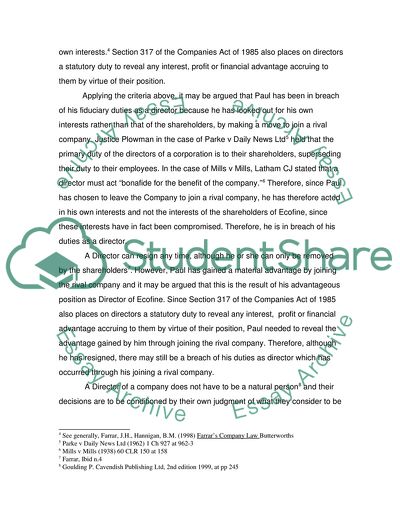Cite this document
(Company Law Case Study Example | Topics and Well Written Essays - 1500 words, n.d.)
Company Law Case Study Example | Topics and Well Written Essays - 1500 words. https://studentshare.org/law/1707553-a-case-of-company-law
Company Law Case Study Example | Topics and Well Written Essays - 1500 words. https://studentshare.org/law/1707553-a-case-of-company-law
(Company Law Case Study Example | Topics and Well Written Essays - 1500 Words)
Company Law Case Study Example | Topics and Well Written Essays - 1500 Words. https://studentshare.org/law/1707553-a-case-of-company-law.
Company Law Case Study Example | Topics and Well Written Essays - 1500 Words. https://studentshare.org/law/1707553-a-case-of-company-law.
“Company Law Case Study Example | Topics and Well Written Essays - 1500 Words”. https://studentshare.org/law/1707553-a-case-of-company-law.


